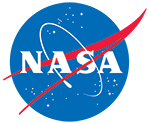
High Mountain Asia 12 km Modeled Estimates of Aerosol Transport, Chemistry, and Deposition Reanalysis, 2003-2019, Version 1
Data set id:
HMA2_MATCHA
DOI: 10.5067/CG4OT8DJX2Z7
This is the most recent version of these data.
Version Summary
Version Summary
Initial release
Overview
This data set contains a 12 km resolution, simulated reanalysis of aerosol transport, chemistry, and deposition over the High Mountain Asia (HMA) region for 1 January 2003 through 31 August 2019.
Two-dimensional surface data are provided at one hour intervals. Three-dimensional atmospheric data are provided at three-hour intervals for 35 sigma levels extending from the surface to 50 hPa.
Also known as the Model for Atmospheric Transport and Chemistry in Asia (MATCHA), the data comprise a wide range of variables intended to help assess the impacts of aerosols on the cryosphere in the HMA region, including: concentrations of black/brown carbon and other light absorbing particles (LAPs), broken out by source region; longwave/shortwave heating rates due to LAPs; wet/dry deposition of LAPs; precipitation and hydrological data; and meteorological state variables.
The simulation was generated using a fully coupled, regional chemistry-climate model (WRF-Chem-CLM-SNICAR), constrained by aerosol optical depth (AOD) and carbon monoxide (CO) satellite observations acquired by the Moderate Resolution Imaging Spectroradiometer (MODIS) and Measurements Of Pollution In The Troposphere (MOPITT) instruments, respectively.
Parameter(s):
AEROSOL CONCENTRATION
BLACK CARBON
DEPOSITION
LONGWAVE RADIATION
SHORTWAVE RADIATION
Platform(s):
Aqua
MODELS
Terra
Sensor(s):
MODIS
MOPITT
NOT APPLICABLE
Data Format(s):
netCDF-4 classic
Temporal Coverage:
- 1 January 2003 to 31 August 2019
Temporal Resolution:
- 3 hour
- 1 hour
Spatial Resolution:
- 12 km
- 12 km
Spatial Reference System(s):
- N/AN/A
Spatial Coverage:
- N:57.767S:4.873E:138.953W:44.647
Blue outlined yellow areas on the map below indicate the spatial coverage for this data set.
Data Access & Tools
A free NASA Earthdata Login account is required to access these data. Learn More
Documentation
Help Articles
General Questions & FAQs
This article covers frequently asked questions about the NASA NSIDC DAAC's Earthdata cloud migration project and what it means to data users.
How to Articles
This article shows how to download NSIDC DAAC data from NASA Earthdata Cloud to your computer using three tools: wget and curl—popular command-line utilities for downloading files—and Data Downloader, a Python-based command-line tool developed by the Physical Oceanography Distributed Active Archi
Many NSIDC DAAC data sets can be accessed using NSIDC DAAC's Data Access Tool. This tool provides the ability to search and filter data with spatial and temporal constraints using a map-based interface.Users have the option to:
The NASA Earthdata Cloud is the NASA cloud-based archive of Earth observations. It is hosted by Amazon Web Services (AWS). Learn how to find and access NSIDC DAAC data directly in the cloud.